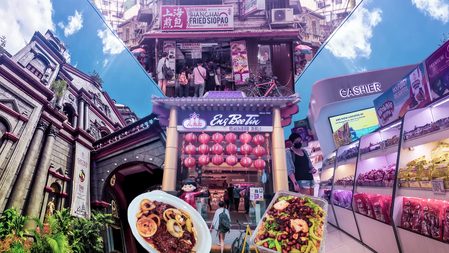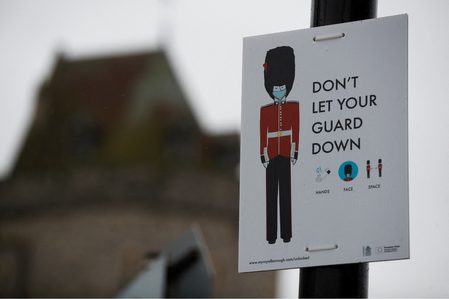SUMMARY
This is AI generated summarization, which may have errors. For context, always refer to the full article.

After more than two years of being grounded by the pandemic, my sister and I decided to dip our feet in the uncertain waters of international travel. How would it feel to be out there in foreign lands with COVID-19 still in the air — albeit at a much scaled down presence? How would it be like to be tourists once again?
We thought a vacation, especially after a heartbreaking presidential election, would help us reboot. Our destination: Israel and Jordan. Israel opened its borders in March, was a success story in containing COVID — it was the first country to give its population a second booster shot — and it doesn’t require visas for Filipino tourists.
More importantly, we’ve been longing to experience this country with a fascinating history, especially Jerusalem, a sacred city of three faiths, and of course, Israel’s healthy and delightful cuisine. Food completes the joy of travel.
Jordan, where the ancient city of Petra is, was too good to pass, just a few hours by land from Jerusalem. Tourist visas are required for Filipinos — and these are given upon entry. Our travel agent here and its partner in Israel arranged our visas in advance.
Overall, we had a wonderful time. But COVID has brought new anxieties to international travel as countries figure out what works best to stem the entry of the virus into their shores. Here are what we experienced:
· The RT-PCR test: Israel requires this 72 hours before your departure — and another one upon arrival. Apparently, the second test was found to be superfluous as Israel no longer required this as of May 20. Other countries also require a test, either antigen or RT-PCR; Jordan is one of the countries which does not require it.
· Online entry forms: Here, you have to upload the results of your RT-PCR (or antigen test), proof of vaccination, and passport, while figuring out replies to questions which are not crystal clear.
· Additional costs: The tests can be expensive, from $20 in Israel to $30 in Jordan. Travel insurance now covers COVID although the cost is reasonable (P1,700 for 11 days). The larger expense was taking business class, an extremely rare thing for us, because we feared spending long hours in crowded flights.
What if?
The most stressful part was waiting for the COVID test results with the what-if question lurking in our minds. I assume that, in the near future, this will just be part of the international travel routine, like filling up immigration forms. But for now, and for the first-time pandemic travelers, it can be an anxiety-inducing moment.
In Israel, for example, we made the mistake of paying for a regular RT-PCR test and the results came very late. The rule was: no negative test, no tour. We had a sleepless night anticipating that we would miss our tour!
We made the case with our tour operator that we tested negative in the Philippines just two days earlier and we were asymptomatic. She allayed our fears and allowed us to join the tour, explaining to us that the testing company couldn’t deal with the volume as thousands of tourists had started to arrive. Whew! (The results came on the second day of our tour.)
The Philippines requires negative tests as well — 48 hours before departure for an RT-PCR test and 24 hours for an antigen test. In Amman, where we were to board our flight home, we had a most unusual swab test — on our tourist bus. Our guide arranged for two workers from a laboratory to meet us on the road. We got the results in four hours.
Our Mexican tour companions, whose first stop was Egypt, told us that their swab test was done in the lobby of their hotel.
Back to Israel: Health authorities also required tourists to “isolate” in hotels before receiving the test results. To our great relief, the hotel staff didn’t mind this; they never checked and we went out for an exciting Mediterranean dinner in a nearby restaurant with friends.
We noticed a disconnect between the healthy ministry’s impositions and the tourism people who desired to get back to business.
No masks
My sister and I were the last holdouts when it came to wearing masks, both in Israel and Jordan. (We took them off only for the cameras.)

It seemed weird to us that no one was wearing masks in restaurants, shops, on the streets, in taxis and trains. Israel had lifted its mask mandate many months ago and kept it only for hospitals and nursing homes.
In our tour group of 12 — Americans, Canadians, and an English woman — only the two of us Filipinos wore masks, even while walking long stretches in the open air and climbing hilly streets. The oldest among us, an 82-year old woman, asked why we kept our masks on. Our answer: it’s a two-year habit we couldn’t easily shake off, plus we thought it prudent.
This was the case in Jordan where in our smaller group of seven — Americans, Mexicans, and an Argentinian — we were the unrepentant mask-wearers. In our hotel, a few of the waiters wore masks but as chin guards or below their noses. Apparently, Jordan requires masks but many do not follow the rule. Our guide told us that his country opened to tourists in December last year, way ahead of Israel.
For all of you planning to go on overseas travel, best to read all the rules and requirements with eagle eyes — and ask your travel agent all the questions you can think of.
In the future, depending on the COVID wave, countries are expected to relax or restrict rules. The tourism sector is also adapting, making it easier for tourists to go through COVID tests, from tour buses to hotel lobbies and perhaps restrooms?
Bon voyage!
– Rappler.com
Add a comment
How does this make you feel?







There are no comments yet. Add your comment to start the conversation.